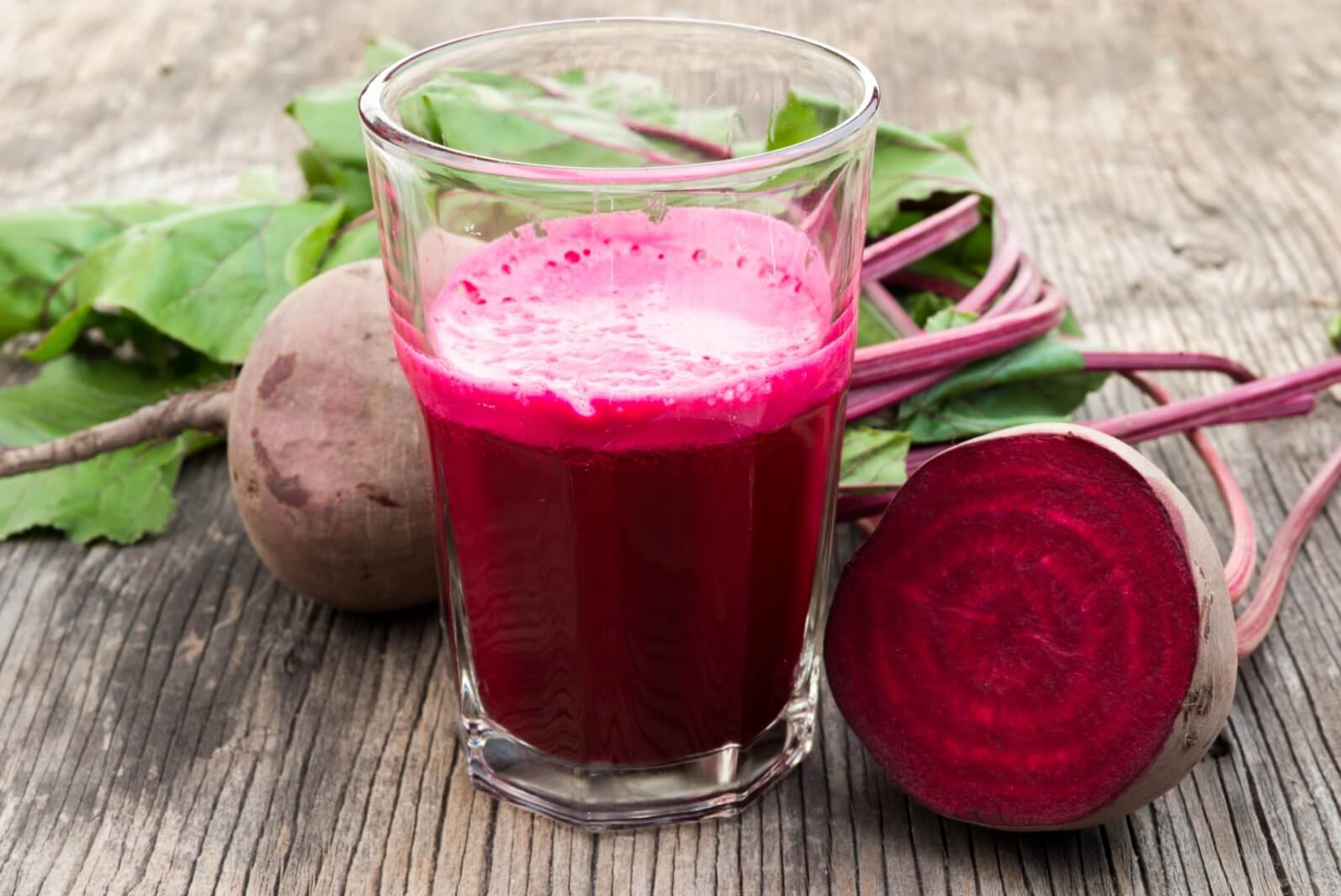Beetroot, also known as beta vulgaris, is a type of root vegetable with huge benefits for your health. Beets are powerful sources of essential nutrients. Beets contain fiber, manganese, potassium, and vitamins C and B9 (also known as folate). Few foods offer you such a diverse nutrient content in a single serving!
Because of this, eating beets provides you with many significant health benefits. Beetroot has been shown to have a positive effect on your blood flow, and even your physical performance. The immense benefit of beetroot is partly due to the high amount of inorganic nitrates found in this vegetable.
Plus, beets are fun to eat! Although beets taste great when simply eaten raw, you can also enjoy them pickled and cooked. Even the leaves can be prepared like spinach. There are different kinds of beetroots, but the most common varieties are red, dark purple, white, pink, and yellow.
Beets Nutrition Facts
There’s a reason beetroots fill you up without provoking weight gain: They’re mostly water. You know what’s interesting? The composition of beets is 87% water, 8% carbohydrates, and about 3% fiber. You can munch on a full cup of beets and consume only 60 calories! The vegetable is a good source of both fiber and protein; these are beets nutrition facts seldom talked about. They also contain small amounts of omega-3 and omega-6 fatty acids.
Carbohydrates
Looking at the nutritional value of beets, one must take a closer look at carbohydrates. Raw and cooked beets have a carb content of 8-10%. About 70% of the carbs in raw beetroots are simple sugars, like glucose and fructose. This number increases to 80% when the beets are cooked. Beetroots are also an excellent way to nourish your body with short-chain carbs known as FODMAPs (Fermentable Oligosaccharides, Disaccharides, Monosaccharides and Polyols).
Beets Fiber Content
Need more fiber in your diet? Beets are a great source! According to Health.com, there is 2-3 grams of fiber in beets per, 100 g. Fiber is essential for maintaining good health.
Final thoughts: Most of the carbs in beets are simple sugars. The most notable are fructose and glucose. Beets give you plenty of fiber.
Vitamins and Minerals in Beets
Looking for more reasons to eat beets? There are essential vitamins and minerals in beets.
Iron
According to WebMD, body needs iron to perform many essential functions, such as transporting oxygen in red blood cells.
Vitamin C
According to NCBI, it’s critical that you get enough vitamin C. It serves important functions for your skin and immune system.
Manganese
According to NCBI, this trace element is usually found in fruits, vegetables, legumes, and whole grains. Beetroots are a rich source of the compound.
Final Thoughts: Beets are an excellent source of many important vitamins and minerals, including potassium, manganese, vitamin C, and folate.
Beetroot Ingredients
You can reap many health benefits from eating certain plant compounds.
Beetroots contain some of the best for your body:
Betanin
Betanin is the substance that gives beets their distinctive red color. It’s the most common pigment in beetroot.
Vulgaxanthin
This is yellow or orange pigment is found in yellow beets and beetroots.
Inorganic Nitrate in Beets
According to NCBI, once consumed, inorganic nitrate can turn into nitric oxide, which has many important functions throughout your body. In addition to beets, it’s found abundantly in several leafy vegetables.
Final Thoughts: NCBI reports that beetroots have high levels of plant compounds, such as vulgaxanthin, inorganic nitrates, and betanin.
What About Nitrates in Beets?
The phrase “inorganic nitrates in beets” encompasses nitrites, nitrates, and nitric oxide. Beets and their juice are rich in nitrates.
According to NCBI, about 80-95% of dietary nitrates are derived from vegetables and fruits. This differs from dietary nitrite, which is usually found in cured meats, food additives, cereals, and baked goods.
Dietary nitrates from beetroots are converted to nitric oxide, a biological “messenger.”
Beets Health Benefits
Beets health benefits your heart and improves physical performance.
Beets and Athletic Performance
Beets provide you with nitrates, which improve your performance during exercise. Dietary nitrates reduce the oxygen you use during exercise by improving the efficiency of your mitochondria, or the cell organs in charge or producing energy. The high inorganic nitrate content of beets improves oxygen use, increases stamina, and makes for better athletic performance.
Final Thoughts: Eating beets makes for more efficient use of oxygen, better endurance, and increased physical performance.
Beetroot Side Effects
Most people react positively to beets. However, there are some individuals that experience beetroot side effects. One of the more common effects is when urine turns pink or red. This transitory side effect is entirely harmless.
FODMAPs
Beetroots are known to contain FODMAPs in the form of fructans. These are short-chain carbohydrates that are eaten up by the bacteria in your gut.
What Users Are Saying
“I just started using beetroot powder a month or so ago. James Tiny Vest is right. This really works. I have noticed increased energy and improved pumps. I add it to both my pre and intra. Does anyone else also use this? Would like to learn about your beetroot experience!”
“I am speaking from long personal experience of the beneficial effects of beetroot. It is also past personal experience because there can be a most undesirable downside to consuming it. The oxalates in beetroot can promote kidney stone formation. That alone calls for moderation. The risk could be heightened in any PAH patients who might already have renal dysfunction or who might be on prescription medications that also have a tendency to cause kidney stones.”
“Beets in its purest form is always going to contain the most nutrients. Any processing diminishes what is available. Cooked beets are better for you than no beets. And powdered beets are probably better than no beets as well, but how were they processed? That matters too.”
Bottom Line on Beetroot
Beets are rich in many nutrients. They’re full of fiber, plant compounds, vitamins, and minerals. Studies show that eating beetroot can improve your health.
The benefits of beetroot are a stronger heart, and greater exercise performance. These advantages are due to high inorganic nitrate levels.
Beets have a sweet taste and can be adapted to a variety of delicious meals.
You can eat beets raw or prepare them with ease. Incorporating beets into a healthy diet is easy and great for your body!
Guide to Health Benefits of Beetroot – Why are Beets Good For You? Questions & Answers
- Recent:
Yes, beetroot is considered a Superfood due to its high nutrient content. Beetroot contains many essential vitamins and minerals such as folate, magnesium, potassium, iron and vitamin C. It is also a good source of dietary fiber and antioxidants, which can help reduce inflammation and protect against chronic diseases. Additionally, beetroot has been linked to improved heart health and lower cholesterol levels.

Summer Banks has researched over 5000 weight-loss programs, pills, shakes and diet plans. Previously, she managed 15 supplement brands, worked with professionals in the weight loss industry and completed coursework in nutrition at Stanford University.



